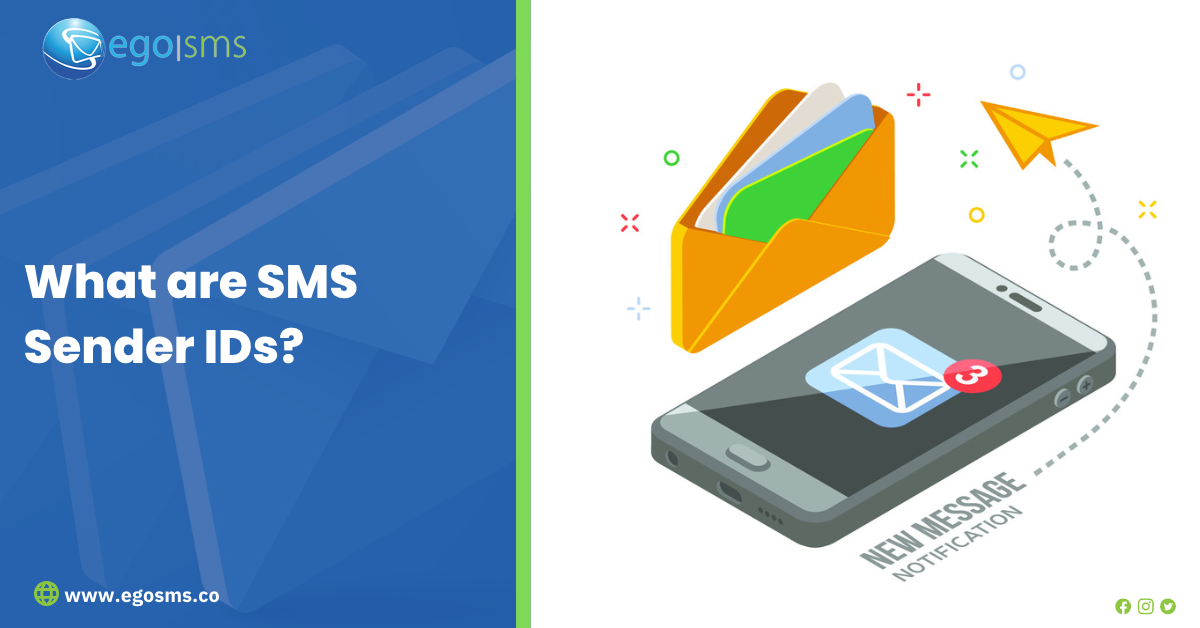 SMS Sender IDs, also known as Sender Names or Sender IDs, are alphanumeric or numeric identities used to identify the sender of a Short Message Service (SMS) message. When you receive an SMS on your mobile phone, the Sender ID is the name or number that appears as the sender of the message.
SMS Sender IDs, also known as Sender Names or Sender IDs, are alphanumeric or numeric identities used to identify the sender of a Short Message Service (SMS) message. When you receive an SMS on your mobile phone, the Sender ID is the name or number that appears as the sender of the message.
Sender IDs can be in different formats depending on the country and telecommunication regulations. Here are a few examples:
- Alphanumeric Sender ID: This format allows a combination of letters and numbers to be used as the sender’s name. For instance, a company might use a recognizable brand name or abbreviation as the Sender ID, such as “MTN” or “Jumia”.
- Numeric Sender ID: In some cases, only numeric Sender IDs are permitted. These can be either a short code, which is a 5- to 6-digit number, or a long virtual number, which is a full phone number. For example, a charity organization might use a numeric Sender ID like “+256701234567”.
The availability and rules surrounding Sender IDs vary from country to country due to anti-spam and anti-fraud measures implemented by telecommunication authorities. Some countries have strict regulations that only allow certain types of Sender IDs or require pre-registration with the telecommunication provider.
EgoSMS Categorises Sender IDs in the following ways:
Random Number Sender IDs: These are numeric sender IDs that are generated numbers. The numbers usually add up to actual telephone numbers but they may not be registered or are numbers being used by users. This means that recipients will not be able to contact those numbers. Random numbers are the most commonly used SMS connection route used. The reason is mostly because of the price. They, however, can have high traffic sometimes and thereby cause a delay in sending out messages.
Default Sender IDs: Default Sender IDs are names or numbers used whenever a sender logs onto EgoSMS. Every new user will use a default sender ID given by EgoSMS by default. These IDs include; InfoSMS, PSMS, 8888, 6644, and RSMS. These are different ID routes. EgoSMS charges 35 shillings for each message using the default sender ID. These IDs are more trusted and have less traffic making it easier for messages to reach on time.
Custom Sender ID: The goal of every SMS company is to make sure that every client they have is using a custom sender ID. This is an Alphanumeric sender ID that is unique to the client or company name. Companies, Institutions or organisations among others are advised to have custom sender IDs. This helps companies to be identified by their clients and increases trust between a company and a client. Custom Sender IDs are accessible through EGOSMS and vary in price according to the telecom network the company wishes to use.
It’s important to note that some telecommunication carriers may replace the Sender ID with a generic identifier, such as “SMS” or a short code, for messages sent by automated systems or bulk messaging platforms to protect recipients from potential abuse or unwanted messages.
Overall, Sender IDs play a crucial role in identifying the source of SMS messages and can help establish trust and recognition for businesses, organizations, or individuals sending SMS communications. To get learn more about Sender IDs and how to use them, Sign up with EgoSMS here.

